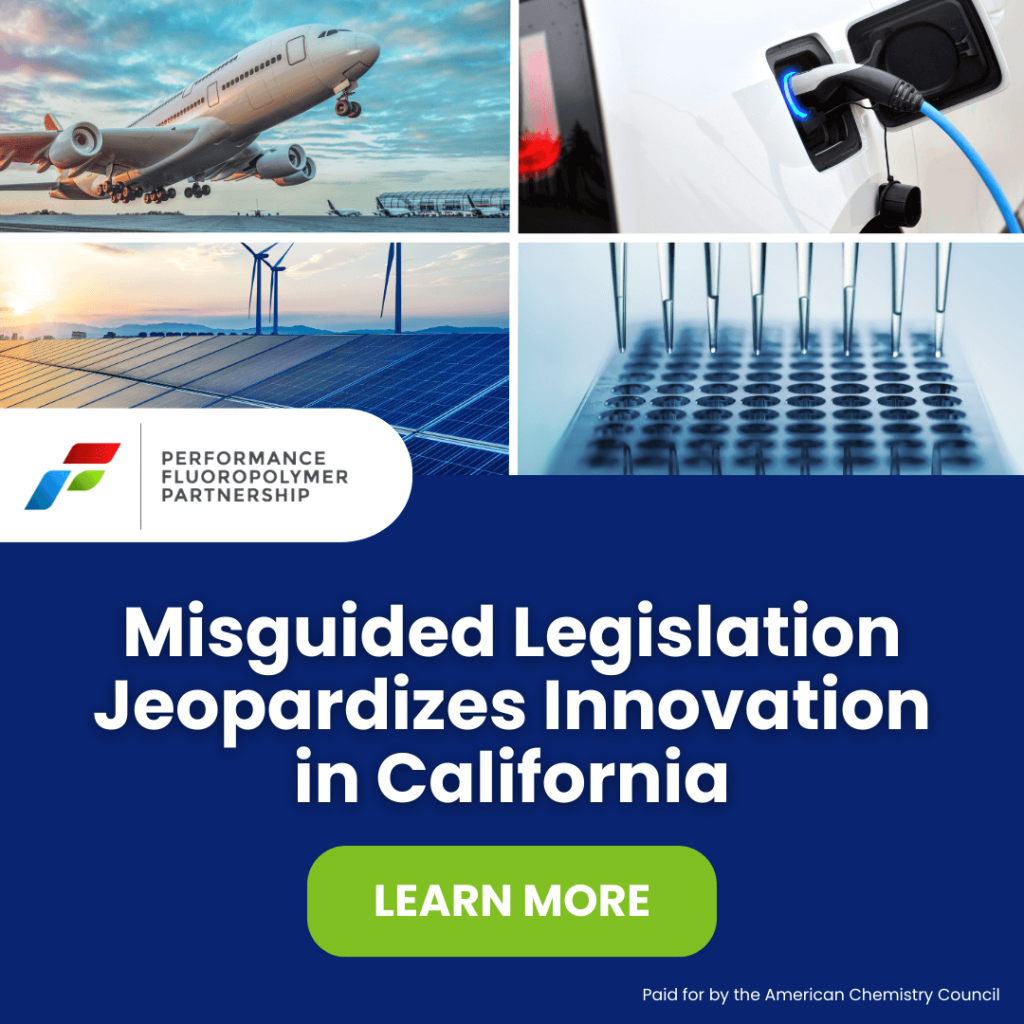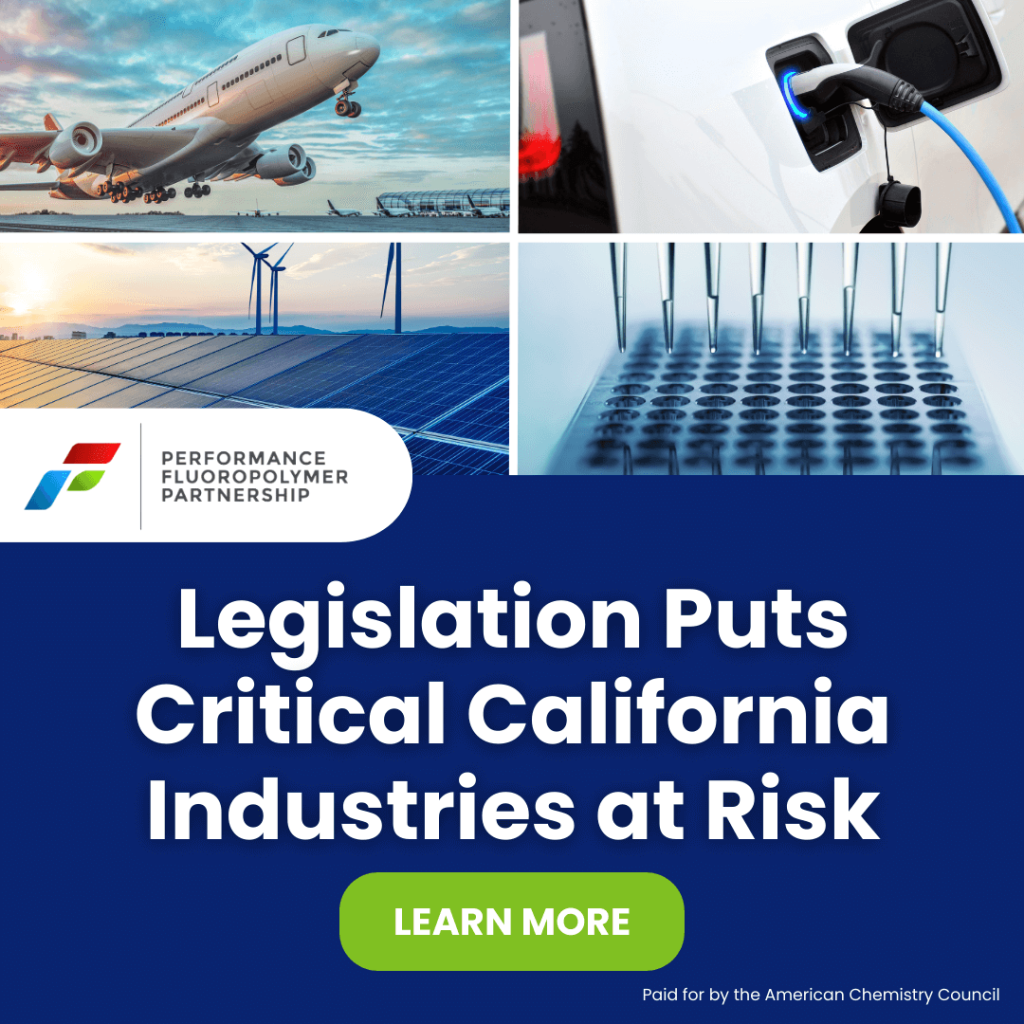
A coalition of California’s leading job creators, innovators, and manufacturers representing virtually every aspect of the state’s economy has joined to oppose SB 903 (Skinner), a proposed law that could jeopardize the future of the state’s semiconductor, automotive, clean energy, electronics, medical, and countless other industries.
SB 903 seeks to create a sweeping and complex new program to regulate all commercial products that may contain, as well as any industrial processes that may use, perfluoroalkyl and polyfluoroalkyl (PFAS) substances. However, this overly broad mandate would treat all PFAS chemistries the same and could restrict the use of fluoropolymer chemistries, which play a critical role in the state, providing jobs, commerce, trade, and boosting overall global competitiveness.
The industry coalition identified numerous problems regarding the scope of the bill:
- Failure to recognize the critical uses of PFAS such as fluoropolymers in a diverse array of products, applications, and industries on which California’s economy relies,
- Undermines investments and policy support by both California and the federal government in certain industries, such as clean energy,
- Generalized characterization and class-based definition of PFAS, which ignores the varying and unique chemical and physical properties among the different groups of chemistries,
- Ignorance of fact that some groups of PFAS, such as fluoropolymers, do not have mobility, bioavailability, and toxicity characteristics indicating that they do not present a significant risk to human health or the environment,
- Conflict between SB 903 and existing product-safety laws, which will cause uncertainty and confusion among regulated persons and frustrate implementation and enforcement,
- Mandate for a vague regulatory process that minimizes manufacturer engagement and fails to provide manufacturers with sufficient notice and due process,
- Failure to utilize the state Department of Toxic Substances Control’s existing chemical management authority to regulate commercial and consumer products,
- Duplication of new reporting rules from the U.S. Environmental Protection Agency that could inform the need to regulate PFAS in consumer and commercial products.
Attempts elsewhere to implement this type of regulatory program have proven to be extremely challenging. The experiences of other jurisdictions serve as cautionary tales for California as it also considers how best to regulate PFAS in commercial and consumer products.

In 2021, the state of Maine passed a similarly broad-brush ban on products using PFAS chemistries, and the Maine Department of Environmental Protection (DEP) has since struggled to implement the mandate. DEP was forced to issue more than 2,500 extensions to companies for just its reporting requirement due to complicated supply chain issues, lack of an operational database to submit product information, limited lab capacity within the United States to test products for PFAS, the lack of protections for confidential business information, and other factors. The Maine DEP has since suspended rulemaking and eight pieces of legislation have been introduced to amend or reform the original law.
Industry remains committed to an on-going dialogue on chemical policy in California that is grounded in strong scientific principles, is protective of human health and the environment, leverages existing state and federal regulatory requirements and resources, encourages innovation and economic development, and provides regulatory certainty to the business community.
For more information, contact Erich_Shea@americanchemistry.com.
